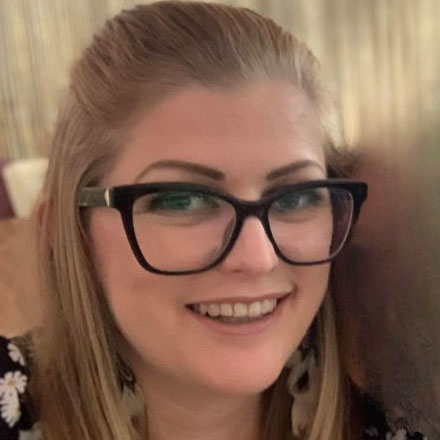I have to tell you about these headphones. They made me cry.
They're the Steven Slate VSX headphones. I only learned the name when I opened the box on my birthday.
It wasn't that I was unaware of their existence⏤ I was very aware. I just chose to block them out of my mind to avoid temptation. They're not cheap (not cheap to me, but inexpensive in the grand scheme of audio equipment), but I couldn't justify spending more money on audio things considering I've released like one whole song eons ago.
I have a lot of reasons I haven't finished or released more music, most of them dumb reasons like my inability to just finish things in general, but one tangible, inescapable hang-up has been the room I record in.
To people who aren't recording their own voices, music, etc., that probably doesn't make any sense. Those of us in the audio trenches know that the room we record or mix in can either be a friend or foe.
And if it's a foe, a battle commences.
Frequencies often bounce off whatever they touch, and untreated walls are typically reflective. Sometimes this leads to madness.
Way too many factors can come into play when playing back your tracks: The distance between speakers and the wall, where monitoring placement is in a room, the number of windows, flooring material⏤ you get the idea. A room's shape will shape what you hear. Some frequencies can be amplified, while others cancel out.
In other words, sound waves are unruly, fickle animals. You can think of some frequencies as invasive pests, appearing in every nook and cranny, reproducing seemingly spontaneously. While others are endangered animals⏤ elusive, mysterious, and make you look crazy to your friends when you swear, "It was right there!".
Sometimes you can knock down the invasive numbers and find the endangered, but other times you can't. Putting foam on the walls, throwing down some rugs, and rearranging furniture can only do so much.
The last place I lived and recorded in was with my best friend. The sound bounced around and diffused in ways that were pleasant (as long as the neighbor kids weren't screaming or hitting the walls with basketballs). What I heard through my monitors seemed to match other speakers. I could hear what I was doing.
I didn't know how lucky I was. As much as the last place was a friend, my current place is a foe. When I play back something through the monitors, the bass is muddled and boomy, while mid-range frequencies fly around uncontrollably, not unlike Robin Williams's invention in the 1997 film Flubber.
Mixing has been impossible. It is the equivalent of a painter painting in the dark.
Eventually, I gave up. I'm not sure I even realized I had been defeated by drywall and concrete floors. I just sort of lost steam.
But then there was the gift. The gift that changed everything.
When I opened the box, I asked, "Are these the headphones?"
As in, the headphones that can change the game. They work with software that uses algorithms to emulate some of the best listening rooms in the world, funneling tracks through a pristine lens, and eliminating the need for a tamed space. The headphones are meant to give an accurate representation of music.
My husband nodded. "They are the headphones."
A feeling of relief bubbled up inside me. I had become numb to the fight with walls and hadn't realized how much it had drained me until the need for it vanished. It didn't matter anymore. I was free.
That was the first time I cried.
Working in a bad room felt like painting in the dark, and the headphones had turned the lights on.
Every other hurdle had been jumped in my setup. Digital had saved me as it has so many of us trapped in tiny living spaces making the best of things. I already had amp simulators, and software compressors to eliminate the need for more hardware. Digital had fixed everything, but couldn't fix where I lived.
Until now, guys. Until now.
I searched my computer for a reference track. I just needed a song I knew inside and out to test these things on. That's when I discovered that I suck at keeping music on anything. I guess I've relied on Spotify more than I'd like to admit.
After attempts to buy a digital copy of music (that's a mess now, holy cow!), it dawned on me. What song would I know more than my own? What does it sound like in these? What would it sound like in the perfect space? I queued it up.
I heard everything. Every echo, every fleeting frequency, and every placement of every instrument.
I heard every mistake, including the ones I didn't know I made.
The clarity made me cry again. Maybe I'm going through a thing? I don't know.
My song sounded the way it was meant to be heard. All the reverb and the the space were present in the way I intended but I hadn't truly heard before. I made a song not intended for cheap earbuds or car stereos, but for real speakers and real space.
We've been listening to music all wrong.
It has never been easier or more accessible to make great recordings. Some might be put off by swarms of competition, but I think it's a beautiful thing. It means more people can express themselves. The barriers are dissipating, and gone are the days that required thousands of dollars and a whole ass studio to make something sound professional.
If you're looking for a gift for the audio engineer or the self-recording musician in your life, talk to them. What's holding them up? Where are they stuck? Where can they get better? Do they need VSX headphones?
Get curious about what they do, but more importantly, Ask them what wall they've hit. I'm sure they found one either literally or figuratively.
 Holly
Holly


















